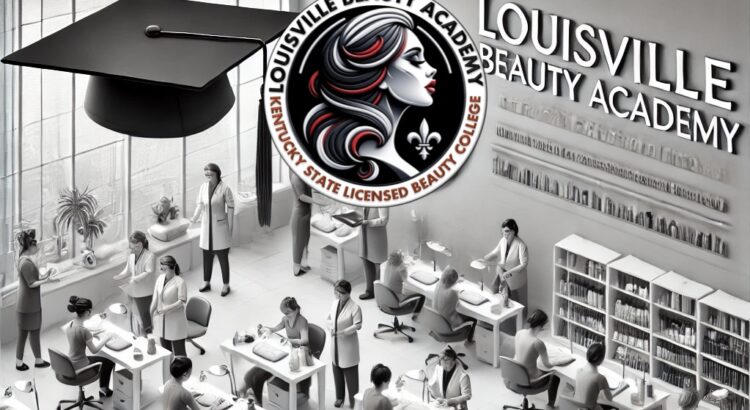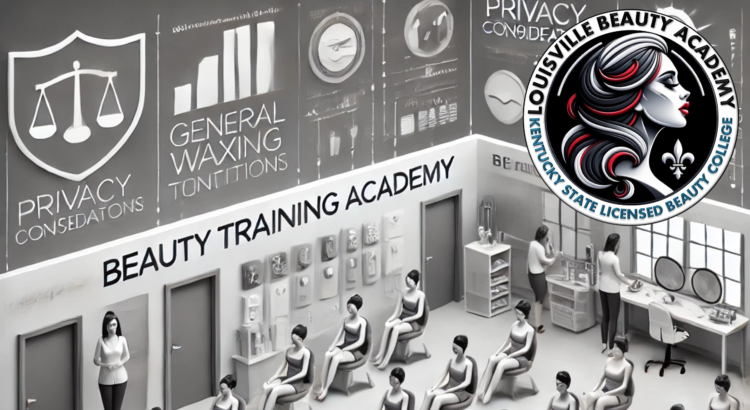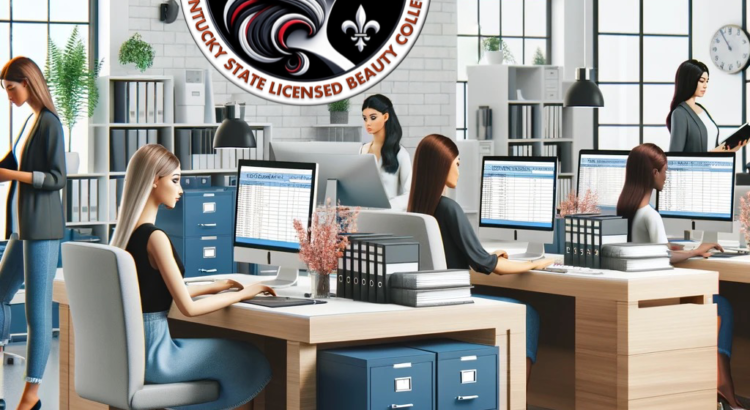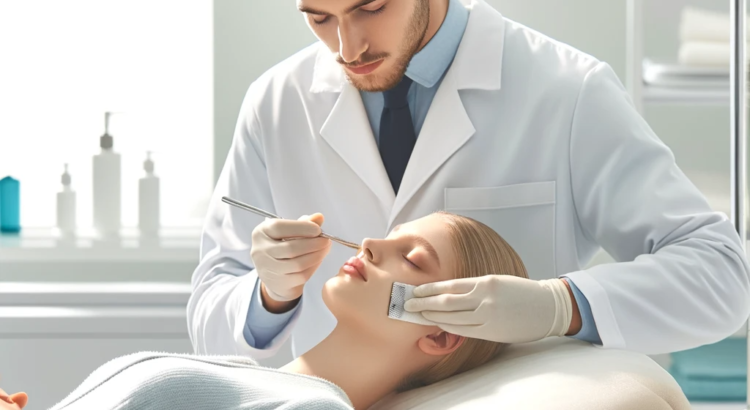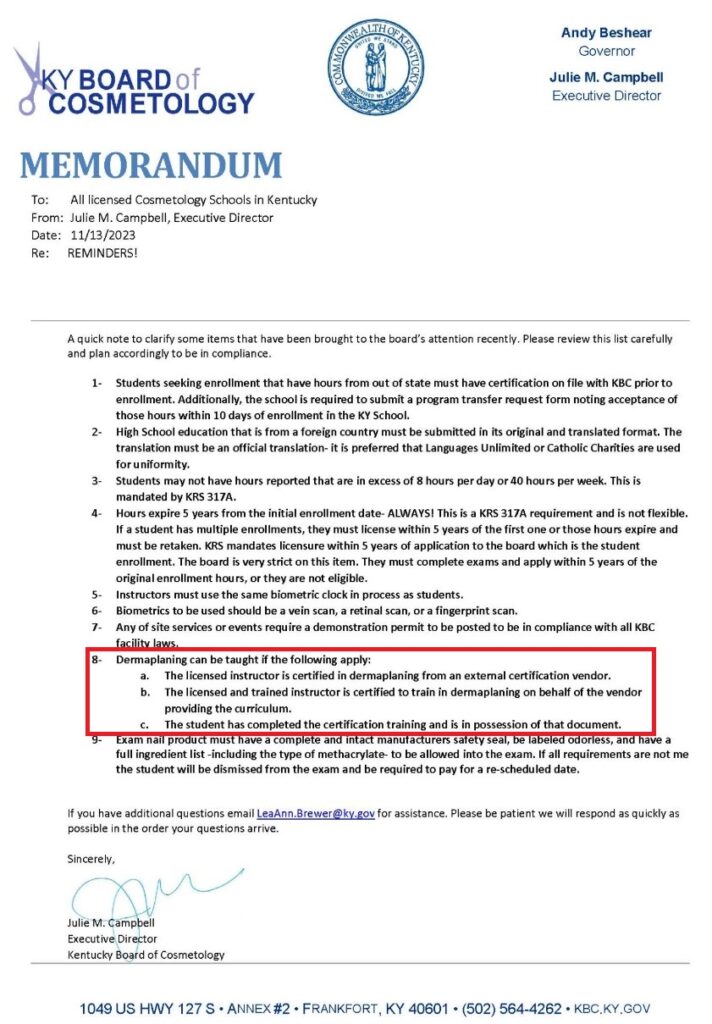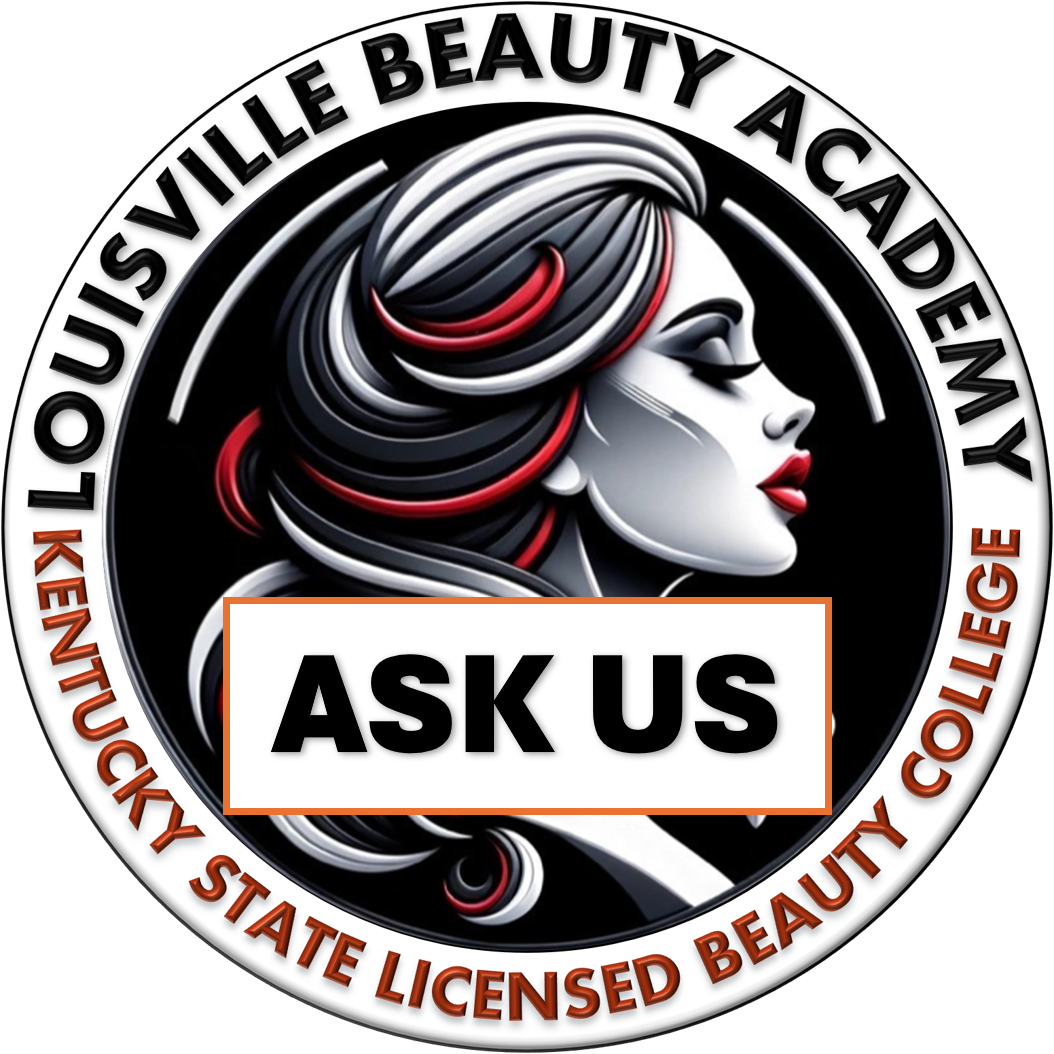At Louisville Beauty Academy, we pride ourselves on delivering comprehensive training programs fully aligned with Kentucky State Board of Cosmetology regulations and Kentucky state law. Each program we offer is tailored to meet specific licensing or special permit requirements, with the primary focus being 100% on preparing students to achieve licensure upon graduation.
Licensing-Centered Education
Our approach prioritizes the theoretical and practical knowledge students need to pass the licensing exams, which consist of two parts: theory and practical. The theory exam is the most challenging for many students, regardless of their English proficiency, and is a common hurdle for beauty professionals across the United States, including Kentucky.
Program Hour Requirements and Focus
The difficulty and content of each program correspond to the required training hours:
- 300 hours: Blow Dry and Shampoo
- 450 hours: Nail Technology
- 750 hours: Esthetics and Skin Care
- 1,500 hours: Cosmetology
As the program length increases, so does the complexity of the content. Louisville Beauty Academy ensures students are equipped with the knowledge and skills to master these requirements, focusing heavily on theory at the outset.
Theory First, Practical Next
To succeed in licensure, Louisville Beauty Academy follows this sequence of training:
- Theory Mastery (Licensing Focus):
- The theory portion of the licensing exam covers extensive content and requires a strong foundation of knowledge. Louisville Beauty Academy uses advanced digital learning systems, offered free or at a discount, to help students study effectively.
- All students are required to pass chapter exams to demonstrate readiness for licensing exams.
- Practical Training:
- After mastering the theory, students transition to practical study, focusing on sanitation, safety, and basic technical skills as required by the state board. The practical exam emphasizes safety and sanitation over advanced techniques.
- Professional Salon Skills:
- Once students meet the licensing requirements, they can learn advanced skills and techniques used in professional salon environments. This ensures that students meet state standards first before transitioning to salon practice.
Ethical Focus: Students First
Louisville Beauty Academy stands apart by putting education first. While many schools emphasize customer service to generate additional revenue, we prioritize student learning. This approach ensures that students dedicate their time to mastering theory and practical skills rather than being overburdened by customer-facing responsibilities.
Although the academy provides customer services when students choose to participate, these opportunities are secondary to education. Students must first excel in licensing requirements before engaging in professional salon practices.
What Will Students Learn?
Students at Louisville Beauty Academy will receive comprehensive training focused on two priorities:
- Licensing Requirements: Mastery of theory and practical skills as mandated by Kentucky state law.
- Salon Professional Practices: Advanced skills and techniques for real-world salon environments, introduced after meeting licensing standards.
At Louisville Beauty Academy, we are committed to creating an educational environment that prioritizes your success. Licensing preparation comes first, ensuring you are ready to launch your career with confidence and compliance.
Student Responsibility and the Importance of Active Engagement
At Louisville Beauty Academy, we are deeply committed to providing a comprehensive education that prepares students for licensure and professional success. However, achieving these goals requires active participation and dedication from each student during their time at the academy.
Maximizing the Learning Experience
The academy’s structured curriculum is specifically designed to equip students with the theoretical knowledge and practical skills necessary for licensing exams. To make the most of this opportunity, students must:
- Attend classes consistently and punctually.
- Complete all assigned work, including chapter exams and practical evaluations.
- Engage fully in both theoretical and practical training.
Waiting to study after leaving the structured environment of the academy can significantly hinder the ability to retain and apply the knowledge needed for licensure. The academy strongly encourages students to prioritize their studies and practice while enrolled.
Shared Responsibility for Success
Education is a collaborative effort. Louisville Beauty Academy provides the tools, resources, and instruction needed for students to succeed, but success also depends on each student’s commitment to learning and their proactive engagement with the program.
Support and Progress Monitoring
The academy offers various support mechanisms to help students succeed, including one-on-one guidance and access to advanced digital learning systems. Progress is tracked through chapter exams, practical evaluations, and attendance records to ensure every student is meeting their milestones and receiving the support they need.
Disclaimer: This information is provided for informational purposes only and does not constitute legal advice. Louisville Beauty Academy rejects all liability for the accuracy or completeness of this information. Prospective and current students are strongly encouraged to contact the Kentucky State Board of Cosmetology directly at kbc@ky.gov for any questions or clarifications regarding licensing requirements or regulations.
By prioritizing education and compliance, Louisville Beauty Academy ensures students are fully prepared for licensure and professional success.
